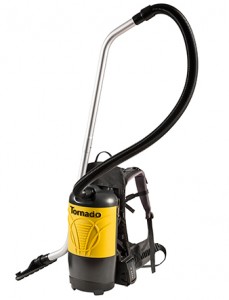Managing a Changing Workforce
The face of the typical housekeeper is changing. In fact, there’s no longer a “typical” cleaner because the janitorial industry now includes such a wide range of ages and cultures.
BSCs and housekeeping managers responsible for managing employees should keep an eye on trends affecting the industry’s workforce. Understanding the changes will better prepare you for the future and help you more effectively lead a diverse crew.
Overseeing Several Generations
Many cleaning crews include members of three very different generations—Baby Boomers, Generation X, and Millennials. Bosses who learn more about these generations can more appropriately respond to and direct members of different ages.
Baby Boomers (born between 1946 and 1964) are retiring at a rapid clip, but they’re not ready to drop out of the workforce entirely. Many are seeking part-time custodial work as a way to stay active or make extra money, and are drawn to flexible and daytime hours. Older workers are known for a strong work ethic and respect for authority, but can also be resistant to change. They may require less training and have lower turnover than younger employees, but also lack technological prowess.
Generation X (born between 1965 and 1980) is the smallest group in the workforce. They are in the heart of their family-rearing years, which means they tend to prefer jobs that offer a healthy work-life balance. They are known for being goal oriented, enjoying job security, and having a basic understanding of technology.
 Millennials (born after 1980) represent the largest generation in history, and they’re quickly taking over the workforce. Having grown up in the Digital Age, they’re the most tech savvy group and that often means they’re good at multitasking and are unafraid of trying new approaches. They’re known for being social, which means they love to work in teams, but they’re sometimes criticised for not paying attention to detail and for requiring a lot of praise to stay motivated. They’re also unafraid to quickly leave a job that doesn’t meet their expectations.
Millennials (born after 1980) represent the largest generation in history, and they’re quickly taking over the workforce. Having grown up in the Digital Age, they’re the most tech savvy group and that often means they’re good at multitasking and are unafraid of trying new approaches. They’re known for being social, which means they love to work in teams, but they’re sometimes criticised for not paying attention to detail and for requiring a lot of praise to stay motivated. They’re also unafraid to quickly leave a job that doesn’t meet their expectations.
When all three generations work side by side, their differences can cause misunderstandings and tension. Understanding what makes each generation tick (and what keeps them happy) will help manager more easily mediate problems and help crews work together harmoniously.
Bridging the Language Barrier
America is called a “melting pot” for a reason—this country was built by immigrants, after all. The nation has always had a sizable foreign-born population, but the number has nearly tripled since 1970 to 13 percent.
 Immigration is so pervasive that most BSCs and housekeeping managers now employ at least a few foreign-born workers. While these employees may speak limited—or even seemingly fluent—English, assuming they fully understand your communications can result in misunderstandings, mistakes, and mishaps.
Immigration is so pervasive that most BSCs and housekeeping managers now employ at least a few foreign-born workers. While these employees may speak limited—or even seemingly fluent—English, assuming they fully understand your communications can result in misunderstandings, mistakes, and mishaps.
Prevent problems by taking some proactive steps to improve cross-cultural communications:
- At minimum, check to see what training materials, literature, or SDSs, if any, your distributor or manufacturer have available in different languages.
- Another smart investment is color-coded tools and graphic instructional signage, which can reduce confusion and errors caused by language barriers.
- Those who want to do a bit more can offer training in their employees’ native tongues (again, distributors and manufacturers can help with this). This not only ensures clear communication, but it also builds employee trust and loyalty.
- To really go above and beyond, invest in language training for your English-speaking managers so they can more easily communicate with their crews. Bilingual employees are also great customer-service agents for BSCs working with clients in diverse areas.
Coping with Turnover
Another important trend that continues to change the makeup of the janitorial workforce is turnover. While high turnover rates have always been a problem in the physically demanding janitorial industry, the numbers will only worsen in the coming years.
Turnover will keep creeping up because younger workers no longer view a job as a lifelong proposition, more workers are approaching retirement than are entering the workforce, and the improving economy is creating more competition for quality workers.
These changes only add to the pressure on custodial managers to attract and retain the best talent. Some turnover-quashing strategies to consider include:
- Provide proper training from Day 1. When employees are confident in their job skills, they’re less likely to make mistakes or require discipline, both of which can cause them to feel embarrassed or frustrated enough to jump ship.
 Create a scheduling system that allows staff to work the hours they like and to easily exchange shifts. Today’s workers, especially younger ones, are drawn to companies that provide more flexibility.
Create a scheduling system that allows staff to work the hours they like and to easily exchange shifts. Today’s workers, especially younger ones, are drawn to companies that provide more flexibility.- Allow employees to earn a reasonable level of autonomy. Workers who feel untrusted and micromanaged are more likely to feel unvalued and start looking for jobs that offer more freedom.
- Offer a leadership development program for employees who show promise. When a worker feels like nothing more than a number, he won’t think twice about quitting. Treated like a leader, however, he’s more like to to take pride in his work and stick around.
Navigating the rapidly changing workforce landscape is tricky. But BSCs and housekeeping managers who want to succeed for years to come must adjust their leadership practices to meet the needs of employees of the future.

Tornado’s All New Battery Powered Pac-Vac Roam 6
Unrivaled Comfort, Cordless Operation & a One Hour Run Time

